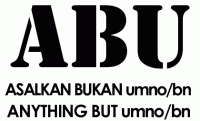Actually it was just two hours, but it was enough to leave the writer shaken and stirred. - The Star
I was given my first ever senior citizen concession last week. It was completely unexpected so I got slightly hysterical.
It happened when I decided to visit Muzium Negara over the Chinese New Year break. Two of my children, aged 24 and 20, tagged along to see what was “new” at the museum.
After all, it had been many, many years since I visited (the kids have no memory of ever visiting) and it had undergone a RM20mil upgrade in 2008.
At the ticket counter, I noted the entrance fee was RM2 for Malaysians and RM5 for foreigners. What I didn’t notice was the RM1 fee for the elderly and disabled as, to my mind, there were no elderly or disabled persons in my group.
Well, the eagle-eyed ticketing girl did. She accepted my RM6, glanced at our three Mykads (to prove we were citizens) and promptly gave me back RM1.
Seeing my puzzled expression, she enlightened me by saying, “Seorang warga emas, kan? (One senior citizen, yes?”)
“Nooooo!” I groaned inwardly as reality hit me. Yes, that’s me: Senior citizen June. Aunty got her first “official” nod as a “golden citizen”, as the Malay term puts it most glowingly, on the third day of the Year of the blasted Wooden Goat.
Blame it on the extended retirement age. Because of that, I have not been put out to pasture and therefore did not think of myself as a retiree with discount privileges.
To cover up my shock, I was giggling rather hysterically as I handed out the tickets to my children.
When I explained what happened, they tried soothing my frazzled nerves by saying, “But you don’t look old, Mum.”
Yeah, but I feel it now. Going into the museum made me even more aware of being a senior citizen. There are stairs everywhere – even to the cafeteria and the wet, smelly toilets located outside – and hardly anywhere for a tired visitor to rest.
Apparently, there is a lift for the disabled but it’s not immediately accessible; one has to go through the gift shop to get to it.
But since I wasn’t disabled and elderly-looking enough, I climbed the stairs to the first floor foyer where two of the four galleries are located.
Gallery A focuses on Pre-history while Gallery B is dedicated to the Malay Kingdoms.
I have a childhood memory of a replica of the huge ceremonial bird used to carry the Kelantan princes for their circumcision ceremony of yore. That was in what is now Gallery B, where there was also a dusty Peranakan matrimonial chamber in one corner.
Both ceremonial bird and Peranakan room are gone. New exhibits showcase the grandeur of the Malay court like the singgahsana or throne. There is a huge bronze bas-relief of Hang Tuah which assured me that our legendary warrior hadn’t lost his place in history after all.
Galleries A and B are quite well laid out in an open concept. But the lighting was a bit too low for my liking, as my golden citizen eyes had to squint to see some of the exhibits.
After the good impression from the first two galleries we were lured upstairs to Galleries C and D: Colonial Era and Malaysia Today.
Foreign visitors generally find the museum a good introduction to Malaysia and appreciate the nominal entrance fee. As a visitor from Canada posted on TripAdvisor: “This nice little museum is great for those who want to know more about what made Malaysia so unique. It does not take long to see it all and for only RM5, it was reasonable.”
But locals like my kids and I aren’t so forgiving.
As a journalist, I was bugged by the inconsistencies in spelling (is it “Melaka” or “Malacca”?), language confusion (nationalisme instead of nationalism), grammatical errors and occasional lack of context and coherence in the English texts for the exhibits. As a newly minted senior citizen, I felt it was rather thoughtless to make visitors climb up more steps to view a couple of the exhibits instead of providing ramps for easier access.
We found the last gallery, Malaysia Today, the least engaging. Quite frankly, by the time we finished, our interest had waned. It felt as if the museum had run out of steam and space to tell our post-World War Two shared history better.
As a British visitor wrote on TripAdvisor: “there is an emphasis on the Malay history (i.e. to the almost complete exclusion of the Chinese, Indian and other Malaysians) in the story of gaining independence, but this is somewhat ironically contrasted with the display on 1Malaysia, which gives one the impression that there is a little papering over the cracks of Malaysia’s issues going on.”
That’s quite an astute observation, made back in April 2012. After all, according to Department of Museums director-general Datuk Ibrahim Ismail in his website message, the national museum, in line with the 1Malaysia aspirations, is an “educational instrument” for “fostering a closer understanding, integration and tolerance among the people.”
He adds: “Our diverse heritage shaped from the assimilation of the different races in Malaysia showcases unity in various unique ways, something which is rarely seen in the international arena.”
That’s a lofty statement that sadly falls short in reality.
Therein lies my biggest disappointment with Muzium Negara: the failure to document the roles of Chinese and Indian leaders and the communities in the making of this diverse nation.
It’s a tad ironic really, considering the artist of the lovely murals on the walls of the museum was Cheong Laitong, the architect was Ho Kok Hoe and the Italian glass mosaic tiles for the murals which cost RM135,000 back in the early 1960s were donated by philanthropist Tan Sri Lee Kong Chian. Their contributions are not mentioned anywhere in the museum, unless I missed it.
But then, what’s also forgotten is that even the National Mosque, built at a cost of RM10mil, has a multiracial past. As reported in an August 2007 Star article, a mosque brochure stated it was “designed by a Malay, constructed by Chinese and Indians, and financed by Buddhists, Hindus, Christians and Muslims”.
If Muzium Negara cannot manage to tell a fuller and more inclusive history, then it’s time for a National Museum of the Malaysian Chinese and Indian, like the National Museum of the American Indian in Washington D.C.
I won’t mind contributing to a fund for that, as long as it is built to be truly accessible to all.
-
Article from The Star by June Wong













 Save to del.icio.us
Save to del.icio.us









